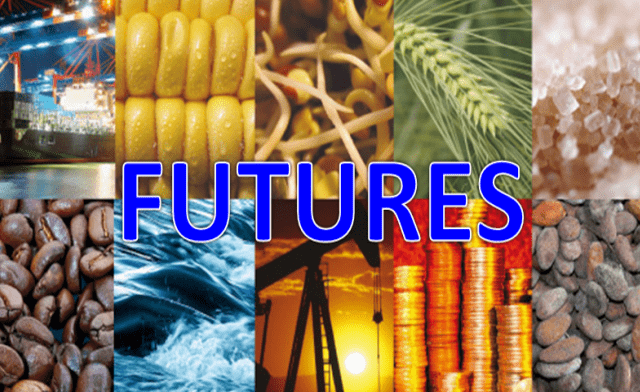Investing in futures: explanation
In this article you can read everything about futures. A future is a contract between two parties in which it is agreed that a certain quantity of a financial instrument is traded at a certain price. This is therefore the conclusion of a transaction that will only be executed in the future.
What exactly is a future?
A future is a so-called derived product and is also called a derivative. A future always relates to something; this can, for example, be a stock but also an index like the AEX. Futures are also regularly used by entrepreneurs; it is not an investment but an appointment to deliver for example 1000 cows at a future time at the current market price.
Futures can be used for different things:
- Agricultural products such as cattle or coffee
- Precious metals such as gold or silver
- Commodities such as oil, copper and lead
- Stock of companies or other financial securities
Trading in futures yourself
It is possible to trade in futures yourself. You invest in futures through an online broker. Because you can invest in futures with a broker, you do not have to keep an eye on administrative matters yourself. With futures you simply receive the difference in price you achieve on the underlying effect.
In this case, it is possible both to earn money with an increasing and a decreasing price of the underlying security. There are also contracts where you earn money when the price falls.
Click here to see the brokers with whom you can invest in CFD futures >>
 The payment
The payment
The payment at a future occurs at the end of the term; this can be done through a physical delivery or a delivery in cash. With a physical delivery the mentioned goods must actually be delivered. Usually, however, physical delivery does not take place and the contract is sold again before it expires; the futures are mainly used on the stock exchange to make a profit by taking advantage of price differences in the underlying securities.
There is therefore more often a delivery in cash. This can be on a stock, for example; if the price has increased you will receive money. Futures, however, are also used by companies to hedge certain risks; you can, for example, have a future payment at a different temperature which can be beneficial if you have an ice cream store.
What determines the price?
The price of a contract of future may differ from that of the underlying security. When the term is longer, this difference is often larger. This is due, for example, to interest; you need less money to purchase a future than to buy the underlying securities. When the period is long, the price of the future will also be higher.
With equities, it is also important to remember that a future usually does not pay a dividend. The more dividend you will lose within the term of the future, the greater the discount on the future relative to the stock. Incidentally, there are also types of futures that do pay dividends, for example CFDs.
Rollover of a future
Futures can expire; if the investor wants to keep the future longer, the future can be rolled over. The rollover is done by buying a future with the same underlying value but a later expiry date. Rolling over usually costs money.
However, this is not very common; futures are mainly used for trading in the short term. In addition, futures are very useful for managing investment risks by hedging.
Auteur

Over Alex Mostert
When I was 16, I secretly bought my first stock. Since that ‘proud moment’ I have been managing trading.info for over 10 years. It is my goal to educate people about financial freedom. After my studies business administration and psychology, I decided to put all my time in developing this website. Since I love to travel, I work from all over the world. Click here to read more about trading.info! Don’t hesitate to leave a comment under this article.
